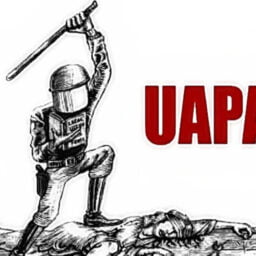Introduction
Self-incrimination, according to Collins’ definition, is the act of accusing oneself or subjecting oneself to prosecution, particularly through supplying evidence or testimony. It is derived from the Latin legal maxim ‘Nemo Tenetur Seipsum Accusare’, which says “No man, not even the accused himself, can be compelled to answer any question, which may contribute to show him guilty of a crime against which he has been alleged.”, and to be more precisely we can say that Nobody is compelled to incriminate or indict themselves. As a result, while an accused person may make a voluntary statement about the charge against him, the judge must warn him before taking such a statement that he is not required to say anything and that everything he says may be used against him in court. As a result, the rule that evidence of an accused’s confession is inadmissible unless it can be demonstrated that the confession was given freely and voluntarily enters into play. Self-incrimination rights are granted in India by article 20(3) of the Indian constitution; this principle was adopted by the fifth amendment of the American Constitution after Britain included this provision as a privilege against self-incrimination in their penal law.
Right Against Self Incrimination in different countries
USA
Self-incrimination provision was added by the fifth amendment that protects the person from compelling/incriminating himself to the law. The following provision of the American constitution is stated: “No person shall be compelled in any criminal case, to be a witness against himself”[i]After being construed by the courts in several cases, the preceding privilege has taken on a broad sense. This protection against self-incrimination extends to both witnesses and parties in both civil and criminal proceedings. It contains all disclosures, including responses, that support a criminal conviction or provide a connection in a series of evidence required for such a conviction.
U.K (Britain)
The unfair practices of demonstrations against accusatory and interrogation of guilty persons in England throughout the Middle Ages eventually led to the development of common law authority through the protection of privileges against self-incrimination. These principles of the British Code of Criminal Jurisprudence state that ‘a person charged with any offense shall not be forced to search for records or items that incriminate himself’. Except in exceptional circumstances, no witnesses, whether parties or a stranger, may be compelled to answer any query or submit any document that may subject the witness (or the witness’s husband or wife) to prosecutions, penalty, or seizure. The purpose of this privilege is to encourage people to testify in court as much as feasible to avoid injury or unnecessary inconvenience as a result of doing so.
India
The right against self-incrimination is protected by Article 20(3) of the Indian Constitution. This privilege, alongside other concepts like “burden of proof on the prosecution” and “proving guilt beyond a reasonable doubt,” was originally recognized in the mid-18th century. It gave the accused certain tools to utilize in defending himself against the State, so lowering the defendants’ damages.[ii]When somebody accused is repeatedly pressed to testify against oneself, it can hurt that person’s mental health. As a result, the credibility of the testimony, declarations, and evidence obtained based on such information are questioned. As a result, the court is misled. These strategies are likely to result in delays and errors injustice. As correctly stated in the case of State of Bombay v. Kathi Kalu Ohgad[iii], “the absence of the privilege against self-incrimination would incentivize those in charge of law enforcement to sit comfortably in the shade rubbing red pepper into the devil’s eye rather than go about in the sun hunting down evidence.”
Article 20(3) of the Indian Constitution
Right against Self-incrimination is not just a legal right but also a fundamental right of an accused person which is enshrined in Article 20(3) of Part IV of the Indian Constitution which states: “No person accused of an offense shall be compelled to be a witness against himself.”[iv] This immunity applies solely to criminal procedures. However, the privilege does not extend if an object or document in the accused’s possession is searched or confiscated. The provision does not exclude the suspect from being tested pathologically or from obtaining his/her fingerprint or sample sign collected for that same purpose.
This right is also supported by several other criminal law principles:
- Presumption of innocence – The accused is deemed innocent until proven guilty, and
- the onus of proving the guilt beyond a reasonable doubt is on the prosecutor.
- The right to remain silent means that the accused shall not be coerced to give anything that he does not want to reveal.
Scope and Essential
In M.P. Sharma vs. Satish Chandra[v], the Hon’ble supreme court of India had extended the meaning of Article 20(3) to include the following essentials:
- The Right is for those who have been “accused of a crime.”
- Additionally, it safeguards against “compulsion to be a witness.”
- He is subjected to the same “compulsion,” providing “proof” against himself.
Once it was found that “Article 21 of the Constitution of India requires a fair, reasonable, and equitable procedure to be followed in criminal proceedings,”[vi] this privilege was given the name “Right to Life.” The Constitution (44th Amendment) Act of 1978[vii] provided a safeguard in the form of non-derogable status, which means that this provision cannot be suspended even in the event of a national emergency. Additionally, Section 161(2) of the CrPC (Criminal Procedure Code) protects the interests of the suspect or accused. The judiciary has narrowed the scope of the term “person” as concluded in the aforementioned provision. In the case of P. N Swami v/s. Emperor[viii], Section 161 of the Code to include any person who may later be a suspect was interpreted by the Privy Council.
Right to remain silent
It means that no court of law should conclude that an accused or person is suspected of committing an offense just because he/she has decided not to respond to the court’s or police’s queries. The “right to silence” is a principle stated in the common law.
Conclusion
Self-incrimination is a basic right guaranteed by the Indian Constitution. Article 20(3) safeguards the rights of the individual accused of a crime on the ground, as well as the interests of the State as a fundamental principle for maintaining law and order in society. While interpreting Section 161(2) of the CrPC, a witness or key suspect in a criminal case can also benefit from these Rights. Law is an ever-changing process that responds to changes in society, science, ethics, and other variables. Science-related discoveries and improvements should be incorporated into the legal system. it allows as they do not violate basic fundamental norms and benefit society. The criminal justice system should be founded on the ideologies of righteousness and impartiality. When an accused is coerced or intimidated into giving evidence or making a statement, the case against him is jeopardized, then the accused person has the right to be silent and not say anything against their will And so it is critical to defend the accused until he or she is found guilty. “No man may be seen with a guilty eye until and unless he is proven guilty in a court of law,” is a well-established legal concept, as a result, compulsory self-incrimination is seen as conferring privileges in India as well as other nations such as the United States and England.
Author(s) Name: Riya Raj (Chanakya National Law University, Patna)
References:
[i] U.S CONST. amend. V, – “No person shall be compelled in any criminal case to be a witness against himself”.
[ii] Gautam Swarup, Narco Analysis and Article 20(3) of the Constitution of India: Blending the Much Awaited (2009), http://works.bepress.com/gautam_swarup/2
[iii] State of Bombay v. Kathi Kalu Ohgad, AIR 1961 SC 1808.
[iv] Constitution of India, art 20(3).
[v] M.P. Sharma v. Satish Chandra, AIR 1954 SC 300.
[vi] Maneka Gandhi v. Union of India, 1978 (1) SCC 248.
[vii] The Constitution (Forty-fourth Amendment) Act, 1978, No. 88, Bills of Parliament, 1978, § 40.
[viii] Pakala Narayan Swami v. Emperor, AIR 1939 PC 47.s
















